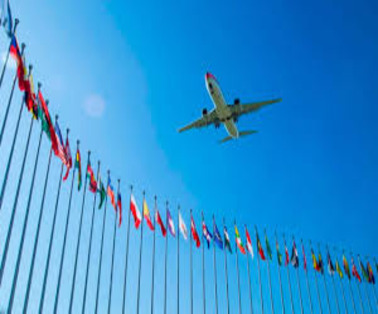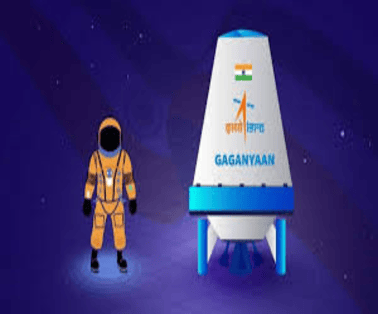India will Join International Climate Action in Civil Aviation to reduce carbon emissions.
India will start participating in the International Civil Aviation Organisation’s (ICAO) Carbon Offsetting and Reduction Scheme for International Aviation (CORSIA) and the Long-Term Aspirational Goals (LTAG) from 2027.
What is International Climate Action in Civil Aviation?
- The ICAO has been tasked to reduce carbon emissions from international civil aviation as one of its focus areas.
- In order to mitigate carbon emissions from aviation and its impact on climate change, the global body has adopted several key aspirational goals.
- Among them are a two per cent annual fuel efficiency improvement through 2050, carbon neutral growth and net zero by 2050.
- The ICAO has clubbed them under CORSIA and LTAG.
Schemes Under International Climate Action in Civil Aviation
Carbon Offsetting and Reduction Scheme for International Aviation (CORSIA)
- CORSIA aims to stabilize net CO2 emissions at 2020 levels through a combination of measures, including carbon offsetting, carbon credits, and sustainable aviation fuel.
- CORSIA is implemented in three phases, out of which participation is voluntary in the first two phases for (2021-2026).
- India has decided not to participate in the voluntary phases of CORSIA.
- Offsetting requirement under the CORSIA for Indian careers will start from 2027.
- This will enable airlines of the developing countries like India to get time to grow more and do not face any financial consequences due to CORSIA by joining voluntary phases.
- CORSIA is applicable to international flights originating from one country to another.
- Financial implications due to offsetting will be borne by individual airlines depending upon their international operations as and when applicable.
The Long-Term Aspirational Goals (LTAG)

India And International Climate Action in Civil Aviation
- India has committed to net zero by 2070 at COP26 to the United Nations Framework Convention on Climate Change (UNFCCC).
- The Ministry of Petroleum & Natural Gas (MoPNG) has notified a National Policy on Bio Fuels 2018 to realize the goal of de-carbonization of aviation sector.
- MoPNG constituted the Bio-Aviation Turbine Fuel Programme Committee to take forward the Bio-ATF Programme in the country to promote the use of clean fuel in aviation.
- The Committee has submitted its report which has now been circulated to various stakeholders.
- India has also taken several steps like joining ICAO’s Assistance Capacity Building & Training for Sustainable Aviation Fuels Programme.
- The Bureau of Indian Standard has issued Indian Standard for Bio-Jet ATF in January 2019.
- Several meetings have been held with the Indian Carriers to sensitize them regarding the impact of CORSIA on airlines once the mandatory phase starts and the resultant needs to be prepared for the same.
What is The International Civil Aviation Organization?
- The International Civil Aviation Organization is a specialized agency of the United Nations.
- ICAO headquarters are located in the Quartier International of Montreal, Quebec, Canada.
- It was formed in 1947.
- ICAO is funded and directed by 193 national governments to support their diplomacy and cooperation in air transport as signatory states to the Chicago Convention (1944).
Core functions Of The International Civil Aviation Organization
- Its core function is to maintain an administrative and expert Secretariat of international civil servants and to research new air transport policy and standardization innovations.
- ICAO also serves as a critical coordination platform in civil aviation through its seven Regional Offices.
- It also conducts educational outreach, develops coalitions, and conducts auditing, training, and capacity building activities worldwide per the needs and priorities governments identify and formalize.
- The stipulations ICAO standards contain never supersede the primacy of national regulatory requirements. It is always the local, national regulations which are enforced in, and by, sovereign states, and which must be legally adhered to by air operators making use of applicable airspace and airports.
- ICAO is therefore not an international aviation regulator, just as INTERPOL is not an international police force.
To Download Monthly Current Affairs PDF Click here
Get Inspiration from CLAT 2025 Topper
Click here to get a free demo
Everything About CLAT 2025



